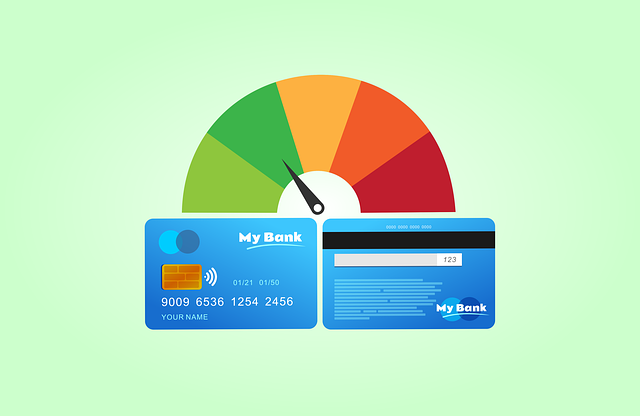What is Business Credit?
Business credit refers to a company’s ability to obtain financing based on its own creditworthiness. Good business credit can help a company secure loans and other financial products. Unlike a personal credit score, the business credit score is tied to a business entity rather than an individual.
Business credit works similarly to personal credit but focuses on a company’s financial history and stability. A strong business credit file can open doors to better financing options and terms. This includes access to business credit lines, loans, and business credit cards tailored for companies.
Why is Business Credit important?
Business credit is crucial in building a solid financial foundation. It helps companies establish credibility and reliability in the eyes of lenders and suppliers. With a solid business credit profile, companies can access various financing products such as business loans, credit cards, and lines of credit. This access to funding is essential for sustaining and growing a business.
Having better business credit can result in more favorable terms when obtaining financing. Companies with high business credit scores will likely secure loans with lower interest rates, saving them money in the long run. Businesses with good credit profiles may also qualify for higher loan amounts and more flexible repayment terms, providing them with the financial flexibility needed to expand operations or invest in new opportunities. It’s important to note that many business lenders also conduct a personal credit check.
Moreover, a positive business credit history can lead to better terms for tradelines, which are crucial for maintaining day-to-day operations. Suppliers often offer better payment terms to businesses with good credit, allowing them to negotiate discounts, extend payment deadlines, and build stronger relationships with vendors. This ultimately contributes to the overall financial health and stability of the company.
How can my company Build Business Credit?
Building business credit involves establishing your company as a legal entity, separating personal and business finances, and using business credit accounts. Here are the specific steps to create your business credit profile and build credit history.
Establishing Your Business
Step-by-step guide on establishing a business as a legal entity:
- Choose a business structure: Decide on the type of legal entity you want to establish, such as a sole proprietorship, partnership, limited liability company (LLC), or corporation. Consider factors like liability protection, tax implications, and management structure.
- Register your business name: Choose a unique name for your business and register it with the appropriate government agency. Ensure another company does not already use the name to avoid legal issues.
- Obtain necessary licenses and permits: Check with your local, state, and federal government agencies to determine what licenses and permits are required to operate your business legally. This may vary depending on your industry and location.
- Apply for an Employer Identification Number (EIN): An EIN is a unique identifier for your business, similar to a social security number for individuals. You need an EIN to open a business bank account, hire employees, and file taxes.
Separate Your Finances
Once you establish your business, the next step is to create a firewall between your personal finances and the business’s finances.
Create a Business Bank Account: To create a business bank account, you typically need to provide your business registration documents, identification, and Tax ID number. Having a separate business bank account helps build business credit by establishing a financial track record for your company, making it easier to qualify for loans and credit in the future. It also adds legitimacy to your business in the eyes of lenders and suppliers.
Get a DUNS Number: To obtain a DUNS number, visit the Dun & Bradstreet business credit bureau website and complete the application form. A DUNS number is a unique nine-digit identifier for businesses that establish credit profiles and track financial transactions. By having a DUNS number, businesses can further separate their personal and business finances, which is crucial for building a strong business credit history.
Use Business Credit Accounts
Several types of business credit accounts report business credit.
Vendor Tradelines: Suppliers sometimes extend trade credit accounts to businesses, allowing them to purchase goods or services on credit terms. Net-30 accounts are a common type of vendor tradeline where the company has 30 days to pay the invoice in full. Businesses can establish credit history and improve their credit score using vendor tradelines.
Business Loans & Lines of Credit: Business financing products like loans and lines of credit help provide funding to sustain operations or fuel growth. Using these credit accounts and making timely payments helps build positive business credit history.
Business Credit Cards: Business credit cards can help build business credit by establishing a track record of responsible borrowing and timely payments. By using a business credit card for expenses and paying off the balance in full each month, a company can demonstrate creditworthiness to potential lenders and suppliers. Be careful not to miss payments or max out the credit limit.
Rent & Utilities: Paying rent and utilities on time can help build a positive payment history for your business, which is crucial for establishing good credit. Lenders and credit bureaus may consider your timely payments when assessing your business creditworthiness.
Resposible Credit Usage
Establishing credit accounts can only improve business credit if you practice responsible credit management. Missing payments, running up high credit balances, or using too much credit can damage business credit and lower your scores.
Follow these practices for responsible credit usage:
- Pay all bills on time.
- Keep your credit utilization low.
- Monitor your credit report regularly.
- Avoid maxing out your credit cards.
- Only apply for credit when necessary.
What are the Best Companies that Help Build Business Credit?
Here are some leading considerations for companies that help build business credit.
Uline
Uline specializes in shipping and packaging supplies for businesses. It offers a wide range of products, such as boxes, tape, and packing materials. Businesses can establish a positive payment history by consistently purchasing these supplies from Uline and paying invoices on time to help build their credit profile.
Quill
Quill allows businesses to establish credit by purchasing office supplies and other essentials on credit terms. By making timely payments on these purchases, businesses can build a positive credit history, which can help them qualify for more extensive lines of credit in the future. This can be especially beneficial for small businesses looking to establish credit without taking on additional debt.
Grainger
Grainger is a business-to-business distributor of industrial supplies, equipment, and tools. It provides access to a diverse range of products needed for operations and maintenance. Utilizing Grainger can help build business credit by establishing a history of purchasing and payments, which can be reported to business credit bureaus to strengthen the company’s credit profile.
Crown Office Supplies
Crown Office Supplies is a company that provides office supplies to businesses. It offers various products, such as paper, pens, and desk accessories. Businesses can establish a positive payment history by purchasing office supplies from Crown Office Supplies and paying invoices on time.
Big Box Stores
Some big box stores, such as Staples and Office Depot, offer net-30 terms for small businesses, allowing them to pay for purchases within 30 days. This can help boost business credit by establishing a positive payment history and improving cash flow. By taking advantage of these terms, small businesses can manage their expenses more effectively and build a stronger financial foundation for future growth.
Warehouse Membership Credit Cards
Several warehouse memberships like Costco, BJ’s, and Sam’s Club offer business credit cards. This can be beneficial for small businesses. By making regular purchases and timely payments, you can establish a positive credit history for your business. These cards often offer rewards and discounts on business-related purchases, helping you save money while building credit. Consider using these cards strategically to maximize their benefits for your business’s financial health.
Fuel Cards
Business gas cards are a convenient way for companies to manage fuel expenses for their vehicles. By using business gas cards responsibly and making timely payments, businesses can build a positive credit history that can help them qualify for larger lines of credit and better financing terms in the future.
Some popular business fuel cards include:
- Shell Fuel Rewards Card.
- ExxonMobil Business Fleet Card.
- BP Business Solutions Fuel Plus Card.
- WEX Fleet Card.
- Chevron and Texaco Business Card.
Business Lenders
Building business credit with loans from business lenders is a strategic way to establish a strong financial foundation for your company. Some reputable lenders to consider for business loans include traditional banks like Wells Fargo and Chase and online lenders such as OnDeck and Kabbage. By responsibly managing these loans, you can improve your business credit score and access favorable financing options.
Business Credit Builder Companies
In addition to traditional methods of building business credit, some companies offer specialized credit-building products or services. Here are some options to consider.
CreditStrong: CreditStrong offers a unique business credit-builder loan product that allows businesses to establish and build credit by making monthly payments towards a savings account. This innovative approach helps businesses improve their credit scores and access better financing options. It reports to Equifax Business, PayNet, and the Small Business Financial Exchange.
ECredable: ECredable is a business credit builder company that allows small businesses to report their payments to major credit bureaus. This helps them establish and improve their business credit profiles, ultimately leading to better financing options and terms for the business.
Credit Suite: Credit Suite offers valuable resources and guidance to help businesses establish and build their credit profiles. By utilizing Credit Suite’s services, businesses can access the tools and knowledge needed to improve their credit scores and secure financing for growth and expansion.
What are the benefits of Business Credit Building vendors?
Business credit vendors offer tailored solutions to help businesses establish and enhance their credit profiles. They provide specialized services like credit monitoring, trade credit, and vendor credit lines, assisting companies in building strong credit histories.
Vendors help secure favorable terms with suppliers and lenders by reporting payments to business credit bureaus. Additionally, they offer guidance in navigating the complexities of business credit, enabling access to a wider range of financing options and vendor relationships. Ultimately, they establish credibility and trust for growth opportunities.
What are the drawbacks of Business Credit Building vendors?
Business credit-building vendors can be costly, provide limited control over the credit-building process, and pose risks of data breaches. High fees can strain small business budgets, while limited input may hinder customization.
Delays in the process may stem from communication issues or documentation requirements. Sharing sensitive financial information with vendors carries the risk of data breaches.
Business Credit-Building Vendor Pros & Cons
Pros:
- Can help businesses establish credit history.
- Provide guidance on how to improve credit scores.
- Offer access to tradelines to boost credit.
Cons:
- Some vendors may charge high fees for their services.
- Not all vendors are reputable or trustworthy.
- Results may not be guaranteed and can vary depending on the vendor.
Frequently Asked Questions
Here are the most common questions about companies that help build business credit.
How do finance companies Help Build Business Credit?
Finance companies are essential in helping businesses establish credit by offering tailored business loans, including SBA loans with favorable terms. They connect businesses with suitable lenders, improving the chances of loan approval.
Finance companies also provide guidance on enhancing credit scores and managing finances effectively. By negotiating favorable terms and fees with lenders, they ensure businesses secure the best deals for their financial needs.
Where can I find Business Credit Scores & Reports?
Small business owners can get their business credit report and score from business credit bureaus. Unlike personal credit reports, business credit reports are a matter of public record. There are several business credit reporting agencies, but let’s focus on the big three.
Dun & Bradstreet
Dun & Bradstreet is a well-known business credit reporting agency. Businesses can access their credit scores from Dun & Bradstreet by signing up for a subscription or purchasing individual reports. These credit scores are crucial for assessing a company’s creditworthiness and financial health.
Experian Business
Experian Business allows businesses to access their credit scores to help them better understand their financial health and make informed decisions. By obtaining credit scores from Experian Business, companies can assess their creditworthiness, identify areas for improvement, and potentially qualify for better financing options.
Equifax Business
Equifax Business offers credit reports and scores for businesses, providing valuable insights into a company’s creditworthiness. By accessing credit scores from Equifax Business, businesses can make informed decisions about extending credit, partnerships, or other financial transactions.
How can I choose a Company to Help Build Business Credit?
As a small business owner looking to build business credit, choosing the right company to help you navigate this process is crucial. Here are some key factors to consider when selecting a company to assist you in building your business credit.
Reputation: Look for a company with a solid reputation in the industry. Check online reviews, testimonials, and ratings to gauge the experiences of other small business owners who have used their services.
Experience: Choose a company with a proven track record of helping small businesses establish and improve their credit profiles. An experienced company will have the knowledge and expertise to effectively guide you through the process.
Services offered: Consider what specific services the company offers to help build your business credit. Look for a company that provides the services you need. For example, opening a tradeline with an office supply company won’t make sense if you don’t need to purchase those supplies regularly. On the other hand, if your business requires a lot of travel, a fuel card would make sense.
Cost: Compare the costs of different companies and consider your budget when choosing a company to help build your business credit. Inquire about any hidden fees or additional charges before committing to their services.
Customer support: Choose a company that provides excellent customer support and can answer any questions or concerns. Good communication and support are essential when navigating the complexities of building business credit.
By considering these factors and doing thorough research, you can choose a reputable company to help you build your business credit successfully. Remember that building business credit is a long-term process, so selecting a company that can support you every step of the way is essential.
Companies That Help Build Business Credit – Final Thoughts
Building business credit is crucial for any company’s growth and success. Small business owners can take control of their credit-building journey by partnering with companies that specialize in helping establish and improve business credit.
This allows entrepreneurs to access better financing options, lower interest rates, and increased credibility with suppliers and lenders. Taking proactive steps to build a solid credit profile is essential to secure your business’s financial stability and future growth.
Contact us if you have more questions about business credit or to apply for a small business loan. Our alternative business funding experts can help you find the best financing options for your credit profile.


















